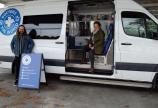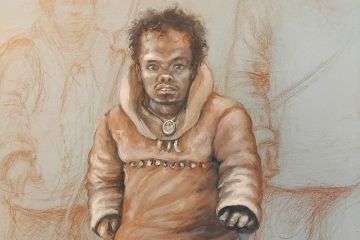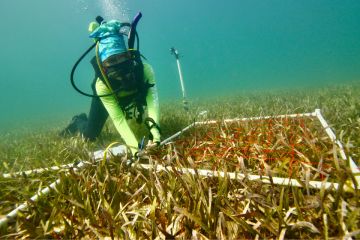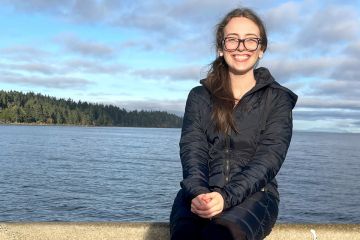Listening to vulnerable clients
- Anne MacLaurin
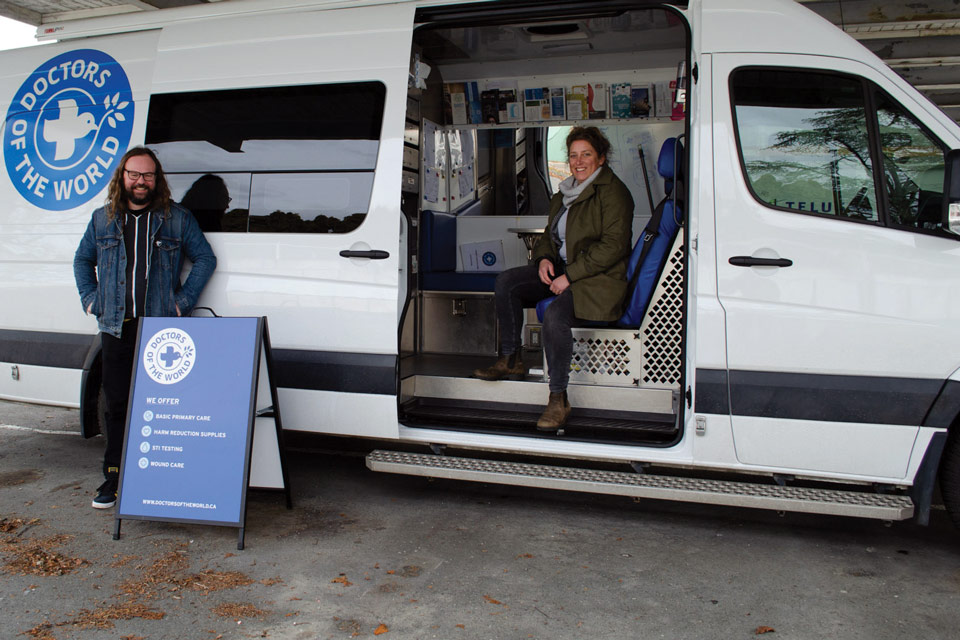
UVic anthropologists respond to community need during pandemic
Anthropologists are usually found uncovering artifacts and pieces of history, but UVic anthropologist of sound Alexandrine Boudreault-Fournier instead applied her research skills to produce a report for the Doctors of the World mobile health clinic in Victoria.
The Doctors of the World mobile clinic moved into Victoria in 2018 during an opioid crisis and, more recently, a global pandemic. In her research, Boudreault-Fournier found that the Doctors of the World mobile health clinic goes “where no one goes” in providing basic health care services to vulnerable populations in a respectful and non-judgmental way.
“I was approached by Doctors of the World to conduct interviews and produce a report about the effectiveness of the mobile health clinic in Victoria,” says Boudreault-Fournier.
“We accepted the challenge based on our knowledge of research methodologies and our sincere desire to respond to a need from the community to work on this project right during the peak of the pandemic,” adds Boudreault-Fournier.
Fellow researcher Anne Guichard, from the Université Laval Faculty of Nursing, and UVic anthropology grad student Mark McIntyre co-authored the report, which is based on 26 interviews the researchers conducted with past and current staff associated with the mobile health clinic. The interviews—including nurses, volunteers and partner organizations as well as people who use the services offered by the clinic—were all conducted to adhere to COVID-based health protocols.
As explained in the report, “Doctors of the World provides a broad range of primary care to vulnerable populations. They never stopped providing care and dispensing—in spite of the pandemic—basic necessities, such as hygiene products, nail clippers, toothbrushes, masks, shampoo, soap, bandages, granola bars, snacks, Tylenol and ibuprofen. Snacks allow for rapport building; they help build trusting relationships and contribute to a sense that Doctors of the World and its staff are part of the community.”
Martine Bernier, of Doctors of the World, praised the work of the researchers, both for their methods and the report’s value to the organization. “Doctors of the World Canada/Médecins du Monde Canada acknowledges with great pleasure the excellent collaboration with UVic’s Department of Anthropology; the evaluators demonstrated a lot of engagement and sincere interest in the work done and developed a larger perspective on the different issues.”
Boudreault-Fournier says the experience was also valuable to the researchers themselves.
As an anthropologist specializing on sound and Cuba, I was never asked for help by an organization working with marginalized populations in the city where I live, here in Victoria. In order to respond to this call, I decided to apply the same research skills developed throughout the years, and with all due respect, to listen to what people had to share.
—Alexandrine Boudreault-Fournier, UVic anthropologist
Photos
In this story
Keywords: anthropology, community, research
People: Alexandrine Boudreault-Fournier, Mark McIntyre
Publication: The Ring

